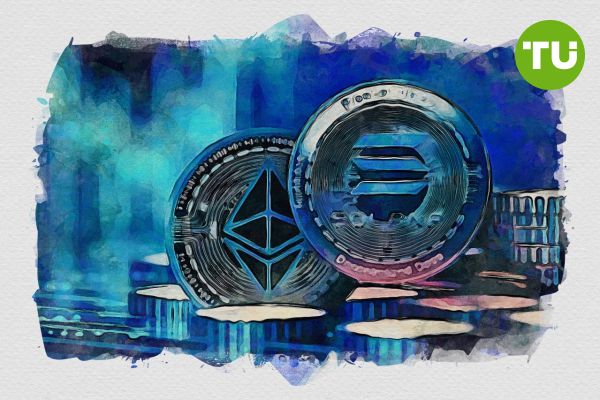Ethereum loses institutional traders to Solana speed
 Brokers prefer Solana over Ethereum for large trades
Brokers prefer Solana over Ethereum for large trades
In the cryptocurrency market, broker-dealers are increasingly favoring the Solana blockchain over Ethereum for large-scale transactions.
According to crypto analyst MartyParty, who shared insights on social media, institutional players are moving away from Ethereum due to rising gas fees and network congestion, BlockchainReporter reports.
Why are brokers choosing Solana?
MartyParty highlights that financial platforms handling large transactions ranging from $1 million to $10 million previously relied on Ethereum. These transactions were essential for liquidity management, debt settlements, and institutional trading. However, Ethereum's high transaction fees and frequent delays have made it less efficient for large-scale operations.
Loading...
Solana, on the other hand, offers significantly lower fees and faster transaction speeds. This makes the blockchain more attractive to brokers who require high-speed, low-cost, and reliable transactions. Additionally, Solana has experienced a surge in stablecoin liquidity, improving conditions for transferring large assets without price slippage or network delays.
Ethereum faces growing challenges
Ethereum’s declining dominance is not only due to high transaction costs but also internal network challenges. Andre Cronje, co-founder of Sonic Labs and a key figure in DeFi, points out that competition from Solana and Tron has had a major impact on ETH’s price performance.
Loading...
Cronje outlined several factors weakening Ethereum’s position in the crypto market:
- Fragmented liquidity caused by the expansion of Layer 2 (L2) solutions.
- Reliance on centralized sequencers, contradicting Ethereum’s decentralization principles.
- Short pressure from USDe and other stablecoins, affecting ETH price stability.
- A slow and ineffective scaling roadmap, deterring developers.
Cronje also criticized the Ethereum Foundation, stating that a lack of clear strategy and weak leadership is hindering the network’s growth.
Ethereum’s rivals gain momentum
As Ethereum struggles with these challenges, competing blockchains like Solana and Avalanche (AVAX) are attracting developers by offering faster transactions, near-instant finality, and user-friendly interfaces.
Cronje argues that Ethereum's competitors actively support projects, while ETH remains neutral. As a result, more teams are choosing Solana and other blockchain solutions over Ethereum.
The future of institutional transactions
The shift from Ethereum to Solana among broker-dealers signals a long-term trend in institutional crypto transactions. If Ethereum fails to address scalability and high transaction costs, institutional players may continue migrating to faster and more cost-effective alternatives.
Previously, the Solana community actively discussed Solana Improvement Document (SIMD-0228), a proposal that could modify SOL’s tokenomics by introducing a dynamic inflation model based on market mechanisms.













































































































































